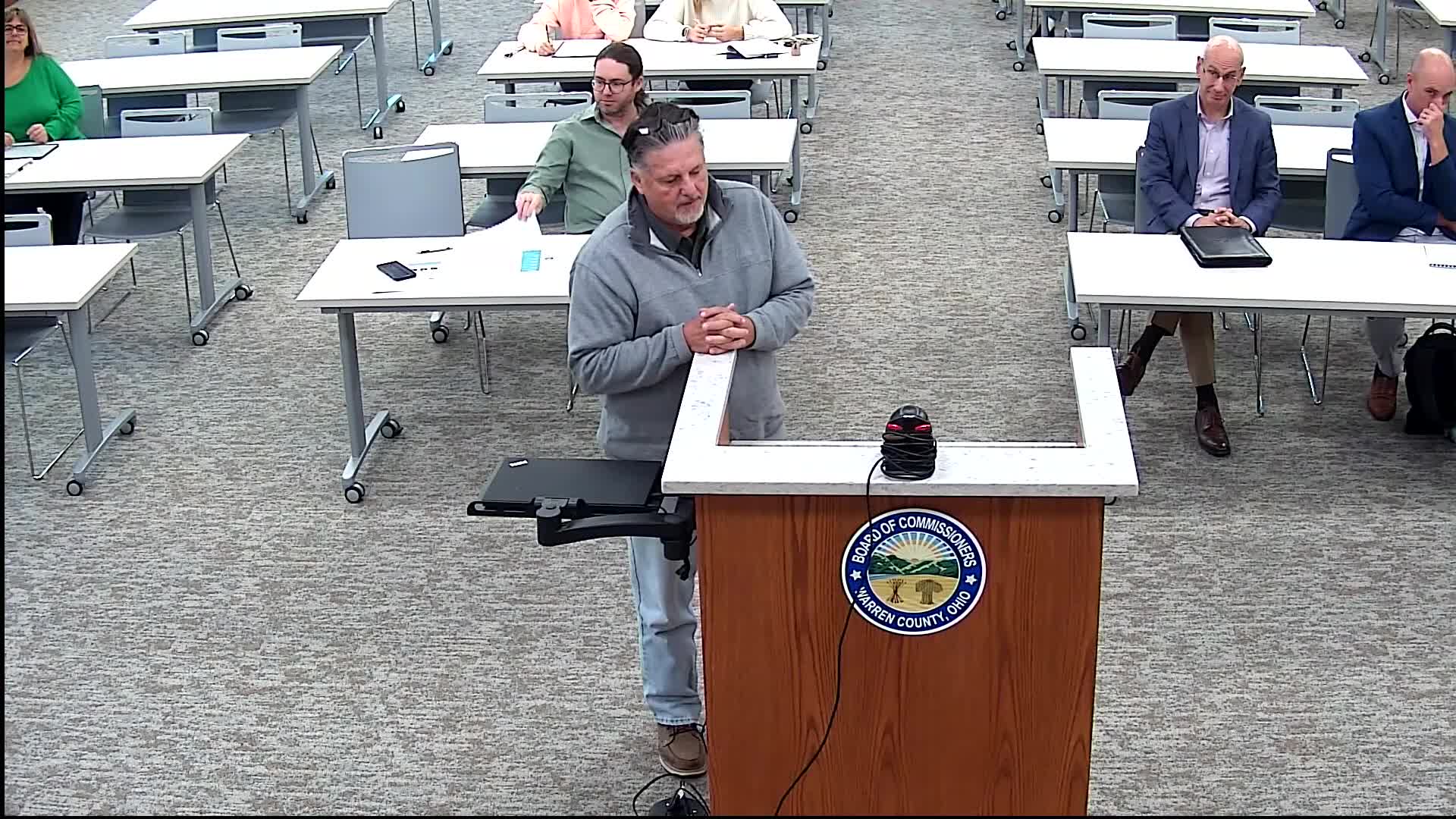Warren County residents and officials discuss federal shutdown impacts and state property-tax reform during public comment
Get AI-powered insights, summaries, and transcripts
Subscribe
Summary
Public comment at the Warren County commissioners’ meeting focused on potential effects of a federal government shutdown on county-administered programs and on state-level property-tax reform; Auditor Matt Nolan said he testified in Columbus on reforms including House Bill 186.
A resident urged Warren County commissioners to clarify contingency plans for county programs that rely on federal pass-through funding during public comment at a commissioners’ meeting on Oct. unknown.
John Foner of Lebanon asked specifically about “plans for county employees and programs that rely upon the flow through of federal funds,” noting potential impacts to social service and veterans programs. “People in the county deserve to know what's gonna happen to the social service, the veterans programs, and so forth that rely on federal funds that you administer,” Foner told the board.
County officials said there had been no immediate disruption to county-administered services at the time of the meeting. One commissioner noted the administration’s public statements about continuing some programs and added that, in prior shutdowns, federal employees and critical services often continued pending resolution in Washington.
Warren County Auditor Matt Nolan — who testified recently in Columbus — described legislative activity at the state level on property-tax matters intended to make rules more uniform across Ohio counties. Nolan said lawmakers had advanced certain proposals that mirror practices Warren County already uses and that those items had passed a House committee. “We’re trying to take the Warren County way and push it to 88 counties,” Nolan said, referring to legislation in the Ohio legislature. He added that more controversial or larger proposals remained in committee and that timing in the legislative calendar could prevent fixes for tax-year 2026 if not acted on quickly.
The public and commissioners also discussed specific tax-policy concepts being debated in Columbus, including a homestead (owner-occupied) credit and limitations on assessment-driven tax increases. Nolan cautioned that some proposals — notably change to owner-occupied credits or major changes to valuation rules like those used in California — would raise practical issues and could shift revenue among taxing entities. He also flagged an “LLC loophole” used by some property owners to avoid triggering certain transfer-based reassessments and said closing it would be an equity and fairness matter.
No county action was taken during the public-comment segment; commissioners said they would continue budget-work sessions and monitor state actions. Commissioners encouraged continued public engagement with state legislators so any statewide reform could be completed in time to affect local tax calculations for 2026.
Why this matters: State decisions about property-tax calculations and credits can materially alter how much local governments and school districts receive in property-tax revenue; a delayed legislative solution may require local officials to consider budget adjustments.
What comes next: Commissioners said they will follow the legislature’s work and continue local budget planning; the auditor reported that some bills have passed House committees and are pending further action in the Senate.
